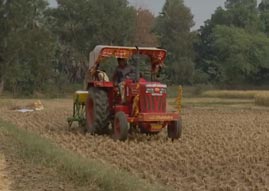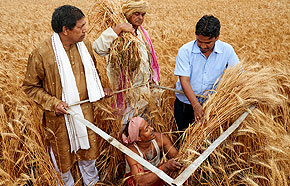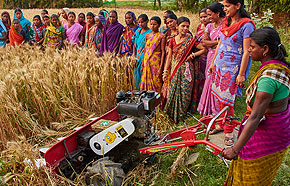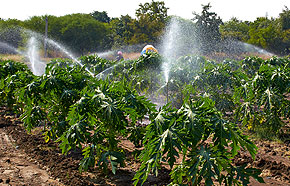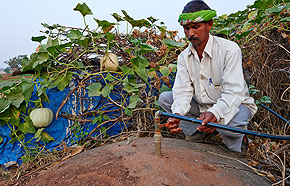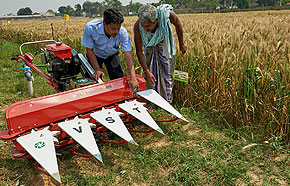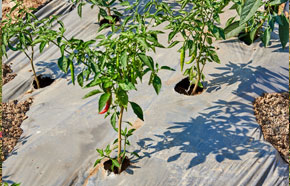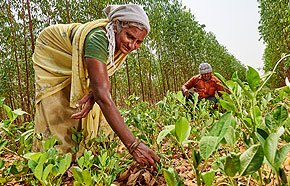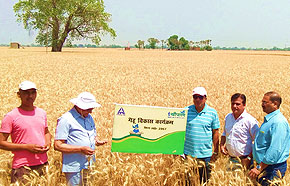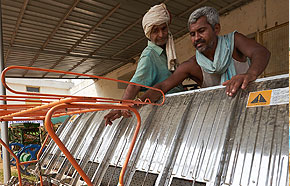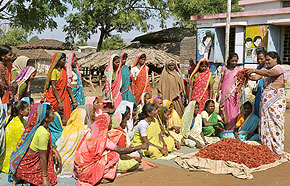The Indian Context
The majority of Indian farmers own very small plots and practice rain-fed agriculture, depending almost entirely on the yearly monsoon for irrigation. A bad monsoon - too little, too much or untimely rain - means that they are unable to sow or harvest successfully. Poor soils, high cultivation costs and inefficient farming methods worsen the situation, leading to low productivity and uncertain incomes. Erratic weather patterns caused by climate change are making their risky livelihoods even more precarious.
ITC's Contribution
ITC's Sustainable Agriculture Practices Programme is designed to assist such small farmers to cope with these challenges. Demonstration plots and farmer field schools in villages give them information and practical training on climate smart farming practices and technologies, e.g. water saving irrigation devices, organic pesticides and fertilisers, mechanisation appropriate for small plots, etc.
The interventions help farmers to conserve and manage soil and water resources, improve crop yields and reduce cultivation costs - leading to higher incomes and fewer incidences of crop failure, making farming less risky and a more sustainable livelihood now and in the future.





